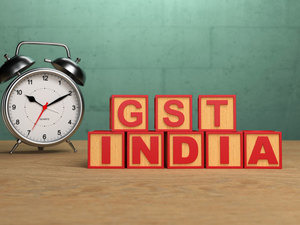As soon as the rate cut was announced by Finance Minister Nirmala Sitharaman, stock markets skyrocketed in euphoria and both Sensex and Nifty ended the day with over 5 per cent gains.
The industry was demanding reduction in corporate tax rate for long time and it was especially anticipated after Prime Minister Narendra Modi’s ‘Make in India’ call soon after he became the PM. Ultimately, the decision to cut the rate has been taken to bring the struggling economy back on the growth track.
As soon as the rate cut was announced by Finance Minister Nirmala Sitharaman, stock markets skyrocketed in euphoria and both Sensex and Nifty ended the day with over 5 per cent gains.
The impact of the jump in market indices was reflected in the day’s closing NAV of equity funds as well.
Talking on sustainability of the market rally, Vikram Kasat, Head Advisory, Prabhudas Lilladher said, “A variety of technical indicators indicate that markets could be attempting a retracing back to higher levels.”
However, equity mutual funds (MFs) are meant for long-term investments, it has to be seen if the cut in corporate tax translates into economic growth to sustain the rally.
“It (rate cut) provides scope for companies to use buffer to improve volume discounts, improve cash flows as well as positions India very competitively vis-a-vis Asian counterparts from a mid to long term perspective on taxation,” said Kasat.
As the muted demand hurting the economy, the key growth driver would be pushing the demand up. It may be possible if companies either use the tax saved for expansion and job creation or pass the benefit to customers either by slashing prices or by offering higher quantity for same prices.
“Additional cash flows may also allow companies to provide ad hocs or bonuses in stressed sectors which may spur demand during Diwali,” said Kasat.
Cutting tax rate for new businesses would attract more investments locally as well as from outside, which would ensure more disposable income through job creation and hence higher demand.
“The “Make In India” Initiative is set to get a major boost due to the new tax rate of 15 per cent. Any new domestic company incorporated on or after October 1, 2019 making fresh investment in manufacturing and which start operations on or before March 31, 2023, will have an option to pay income tax at the rate of 15 per cent,” said Dr Suresh Surana – Founder RSM India.
“Given the trade war between US and China and the large Indian domestic market, several multinational companies are looking at alternative manufacturing locations and this move comes at an opportune time to promote India as a manufacturing hub,” he added.
So, the sustained growth in equity MFs would depend on how soon demand is revived.
However, the story may be different for debt mutual funds, as lower tax rate means lower tax collection for the government, which would widen the fiscal deficit and disruption in bond yields hitting the returns on investments for MF schemes that rely more on bonds.
“The tax reliefs announced are likely to put upward pressure on the fiscal deficit needing a revision in the government’s borrowing target for the year. This would likely lead to upward pressure on bond yields but this could get mitigated if RBI chips in with an aggressive policy rate reduction,” said Dheeraj Singh, Head of Investments & Fund Manager – Fixed Income, Taurus Asset Management Co. Ltd.
Talking on debt sector, Kasat also said, “We are in a soft growth zone right now and while it seems negative for yields, there is a counterbalance in that additional cash flows, which would reduce pressure on bond markets. Apart from this, the RBI surplus is also available and with a good monsoon behind us, the bond markets may want to see real demand really happen for them to negate worry about yields. It’s possible that RBI may come out with another set of measures to reduce pressure.”
So, the debt MFs may face some turbulent time and the RBI and the government may have to take some monetary stance to calm it.






